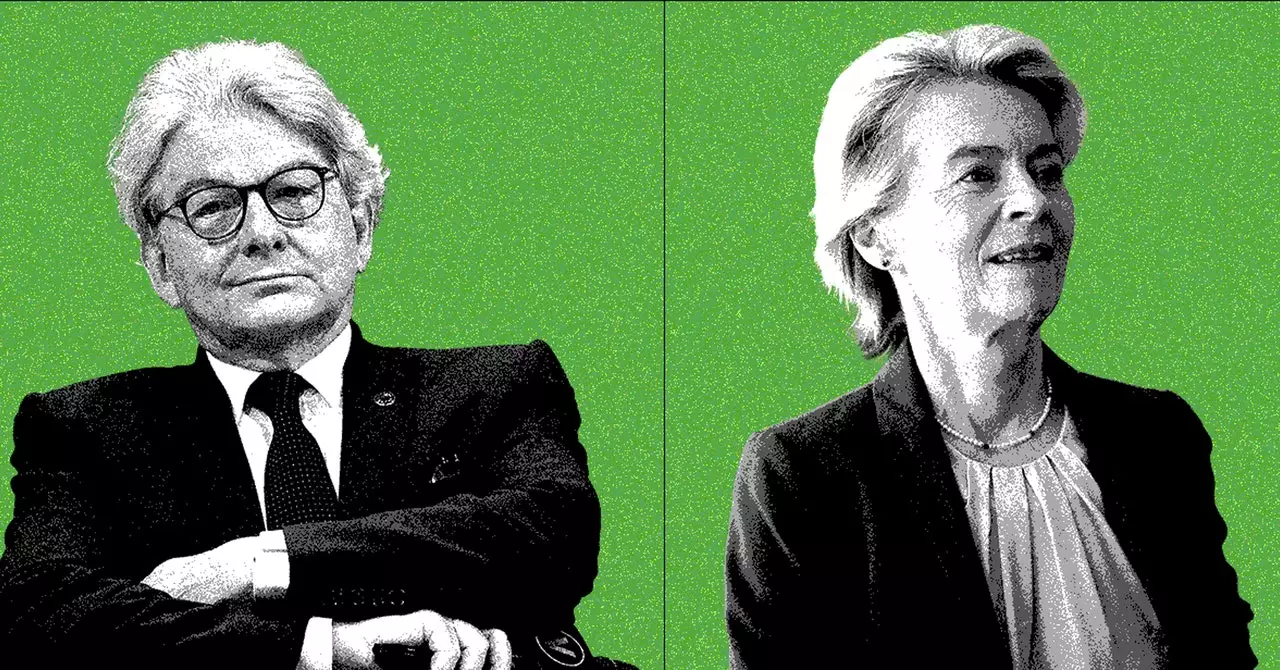In the past five years, if one individual personified the European Union’s stance towards big technology firms, it would certainly be Thierry Breton. As the Digital Economy Commissioner for the EU, Breton emerged as a provocative voice, challenging tech giants like Apple and TikTok directly. His charismatic yet combative style transformed him into a public figure synonymous with Brussels’ growing disaffection for American tech dominance. Breton’s “in-your-face” approach was evident during his expedition to Silicon Valley, as he sought to lay bare the imminent regulatory deadlines confronting these giants. His remarks—insisting that Apple was monopolizing the market and declaring that children should not be the “guinea pigs” for social media experimentation—highlighted a growing skepticism towards the unchecked influence of tech platforms in Europe.
Breton’s tactics were not merely rhetorical; they were strategically confrontational. His social media presence amplified this approach, particularly his interactions with prominent tech CEOs. For instance, his cautionary message to Elon Musk prior to a Trump interview served as a clear signal of Brussels’ expectations regarding moderating harmful content. This public venting of frustration often included jabs at longstanding company practices, like his insinuation during a photo op with Mark Zuckerberg about the need for reform in Facebook’s operational ethos.
However, the surprising resignation of Breton amidst a recent reshuffle of EU leadership positions has raised questions regarding the future direction of tech regulation in Europe. Breton attributed his departure to a supposed arrangement between EU Commission President Ursula von der Leyen and French President Emmanuel Macron, implying a possible political maneuver that favored more diplomatic approaches over Breton’s contentious stance. This shift signals a potential pivot in the EU’s regulatory strategy, allowing for a recalibration of relationships with major tech companies.
With Breton stepping aside, Henna Virkkunen from Finland is poised to take up the mantle. However, her previous interactions within the EU policy landscape suggest a more genteel demeanor compared to Breton’s brashness. While Breton was known for leveling substantial fines to enforce compliance, observers like Umberto Gambini speculate that Virkkunen’s appointment could represent a transformative opportunity for EU-tech relations—favoring dialogue over confrontation. The ambiguity surrounding her stance on Big Tech’s role within Europe’s economy adds another layer of uncertainty regarding the EU’s immediate regulatory trajectory.
The New Executive Paradigm
Virkkunen’s newly bestowed title of executive vice president for tech sovereignty, security, and democracy marks a significant elevation in her responsibility. This redefined role indicates a broader vision for tech regulation that likely encompasses not just market enforcement but a more holistic view of digital governance. The integration of security and democracy into the framework of tech policy may fuel a narrative that prioritizes European values, data sovereignty, and user rights in an ever-evolving digital landscape.
Yet, it is essential to recognize that the composition of the new commission remains under the scrutiny of the European Parliament. It remains uncertain how quickly—or slowly—this body will approve the new appointments, particularly given the complex and often contentious nature of tech regulation debates across different member states. Mathias Vermeulen, a seasoned public policy expert, emphasizes that the EU’s previous era under Breton had a clear ambition, particularly regarding legislation aimed at countering perceived threats from large tech platforms. The shift to potentially less confrontational leadership may spark a reconsideration of the balance between aggressive regulatory oversight and fostering innovation within the European tech ecosystem.
As the EU navigates through these changes, the long-term implications for its tech regulatory landscape loom significant. The resignation of a powerful figure like Breton may signal a newfound aspiration for cooperative engagement with tech entities, or conversely, it could mark the dilution of regulatory momentum that had rendered the EU a formidable player in global tech governance. Virkkunen’s navigation of this pivotal period will likely test her ability to redefine not just policies, but the very perception of how Brussels interacts with technology firms.
As the dust settles from these transitions, the paramount question remains: Will the EU emerge more cohesive and impactful in its quest for a balanced digital marketplace, or will the departure of Breton stymie the progressive reforms needed to ensure both consumer protection and economic vitality in the face of global technology titans? Only time will tell.

